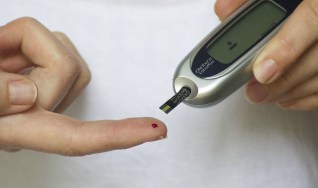It may be possible to reverse Type 2 diabetes in some patients, using oral medications, insulin and lifestyle therapies, according to a small pilot study led by researchers from McMaster University.
The research was published in the Endocrine Society’s Journal of Clinical Endocrinology & Metabolism.
Type 2 diabetes is typically thought of as a chronic, permanent condition. As it progresses, individuals with Type 2 diabetes often need to use a healthy diet, exercise and an increasingly complex combination of medications to manage the condition.
“By using a combination of oral medications, insulin and lifestyle therapies to treat patients intensively for two to four months, we found that up to 40 per cent of participants did not require any diabetes medications for several months after stopping them,” said the study’s first author, Dr. Natalia McInnes, an assistant professor of medicine at McMaster. “The findings support the notion that Type 2 diabetes might be reversed, at least in the short term, with medical approaches.”
The senior investigator on the trial is Dr. Hertzel Gerstein, a professor of medicine at McMaster. He cautioned that the pilot study has shown that the approach used is both acceptable to patients and feasible, and that the findings support new studies to more rigorously test the approach used, which they are doing.
“The findings from the pilot study showed us that there’s smoke. We are now looking for the fire in new studies that will give us a better idea of how many people may benefit and for how long.”
In the pilot study the researchers randomly divided 83 individuals with the condition into three study groups. One group received an eight-week course of frequent coaching, a personalized exercise and meal plan, oral medications, and insulin. The second group received this same regimen for 16 weeks, and the third group received a standard treatment approach to diabetes. After the intervention, the participants stopped taking diabetes medications and were encouraged to continue with lifestyle changes.
Three months after the intervention was completed, 11 out of 27 individuals in the 16-week intervention group met HbA1C criteria for complete or partial diabetes remission, compared to four out of 28 individuals in the control group. Three months after finishing the eight-week intervention, six out of 28 individuals in that group met the same criteria for complete or partial diabetes remission.
“The research might shift the paradigm of treating diabetes from simply controlling glucose to an approach where we induce remission and then monitor patients for any signs of relapse,” said McInnes. “The idea of reversing the disease is very appealing to individuals with diabetes. It motivates them to make significant lifestyle changes and to achieve normal glucose levels with the help of medications. This likely gives the pancreas a rest and decreases fat stores in the body, which in turn improves insulin production and effectiveness.”
Gerstein added: “We chose to use metformin, acarbose and basal insulin glargine in this trial as these medications have all been shown to slow or prevent the development of Type 2 diabetes. However, other drug combinations could lead to higher remission rates and need to be systematically studied with regard to this outcome.”
The research was supported by a grant from Diabetes Canada and the Population Health Research Institute.
Source: McMaster University


